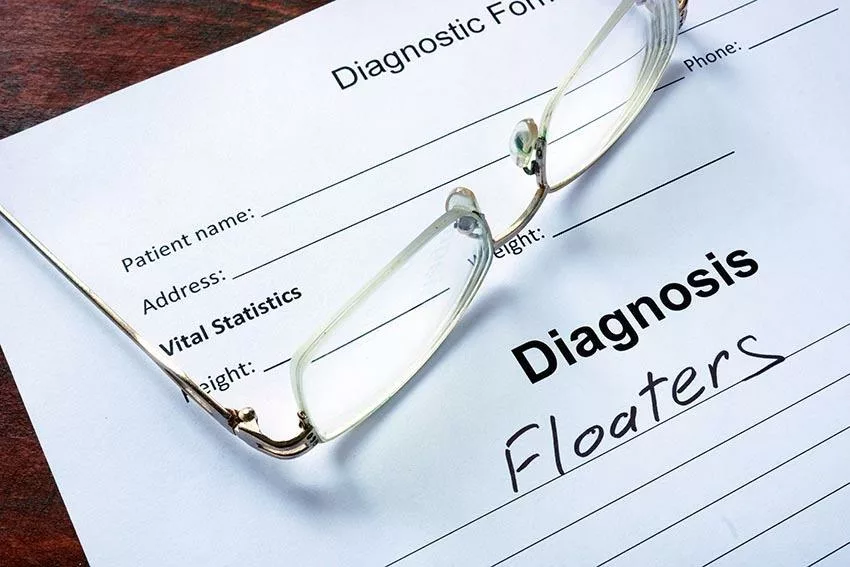
Noticing Floaters Or Flashes in Your Vision? Here’s What You Need to Know!
Floaters and flashes in the eye are completely normal to experience as we age and are typically not dangerous. But on rare occasions, these can be warning signs of something more severe.
What are Eye Floaters?
Eye floaters are small specks or spots that can randomly appear in your field of vision. They can come in various shapes like dots, squiggly lines, whisps, or webbing. Floaters can appear as a distant object or might seem like they are in front of your eye, but they are actually floating around inside your eye.
What Causes Floaters in the Eye?
Your eye is encapsulated in a clear, jelly-like fluid that is made up of tiny cells. This is known as the “vitreous.” As we age, the vitreous gel might thicken, forming tiny clumps of cells. These cell-clumps can cast shadows on your retina, creating the visual illusion of something floating in front of your eye.
What are Eye Flashes?
Flashes of light in your vision can be caused by a number of things. Most people have experienced “seeing stars” when they stand up too fast. These occurrences are not related to any visual problems but are typically caused by a sudden drop in blood pressure.
Experiencing frequent starbursts or flashes of light in your field of vision can be signs of a more serious condition, known as retinal detachment. This can lead to severe vision loss if not treated by an eye doctor promptly.
What Causes Flashes in the Eye?
Most eye flashes or bursts of light are caused by the vitreous gel in your eye pulling on your retina. As the gel thickens it can become partially attached to your retina, tugging or rubbing on it, which causes the flashes or bursts of light.
If you experience any trauma to your eye or head, it can be common to see stars and can indicate damage to your vitreous or retina.
Are Floaters and Flashes Dangerous to My Eyes?
The infrequent appearance of floaters in your eye is not a symptom of anything harmful and is a perfectly normal experience. It is only caused for concern when their appearance becomes frequent, and is also accompanied by disruptive eye flashes.
Frequent eye floaters accompanied by light flashes could indicate a retinal or vitreous detachment, which is a severe vision condition that could result in partial or complete vision loss.
Retinal detachment is usually the result of vitreous damage from recent injury or trauma to the head or eye. Damage to your vitreous can lead to tears, holes, or full detachment of your retina. Anyone experiencing eye flashes should contact NeoVision Eye Center for an eye exam immediately.
How to Treat Eye Floaters and Flashes
Developing vitreous-clumps — eye floaters — is a natural part of our aging process. Because they are natural and harmless, there is no surgical treatment that we recommend for removing floaters. If you find they are a mild distraction, you can try to move the floaters out of your line of sight by looking side to side and up and down. Eye floaters usually fade and become less noticeable over time.
If you are suddenly experiencing an irregular amount of eye floaters or eye flashes you will need to consult an ophthalmologist to determine if your retina is torn or damaged. Damage to your retina that results in tears or holes is an emergency situation. This eye condition requires immediate attention for an eye surgeon to avoid possible vision loss.
Schedule Your Comprehensive Eye Exam at NeoVision Eye Center in Union City
Dr. Tandon has been providing Bay Area patients with advanced vision care for over 20 years. A comprehensive eye exam at Neovision Eye Center is the best way to determine if the floaters and flashes you are seeing are dangerous and a sign of a more severe vision problem. If you are experiencing floaters or flashes, contact our team at NeoVision Eye Center in Union City for a consultation.





